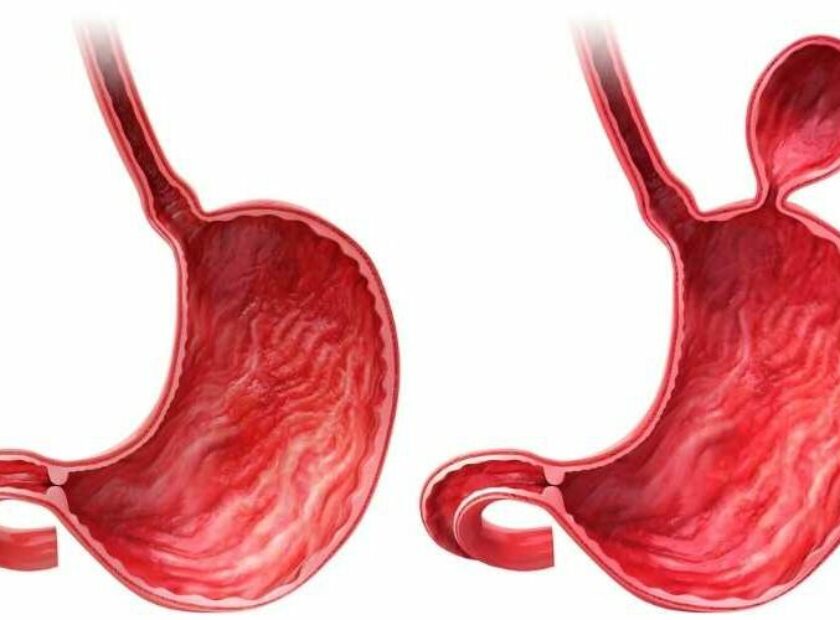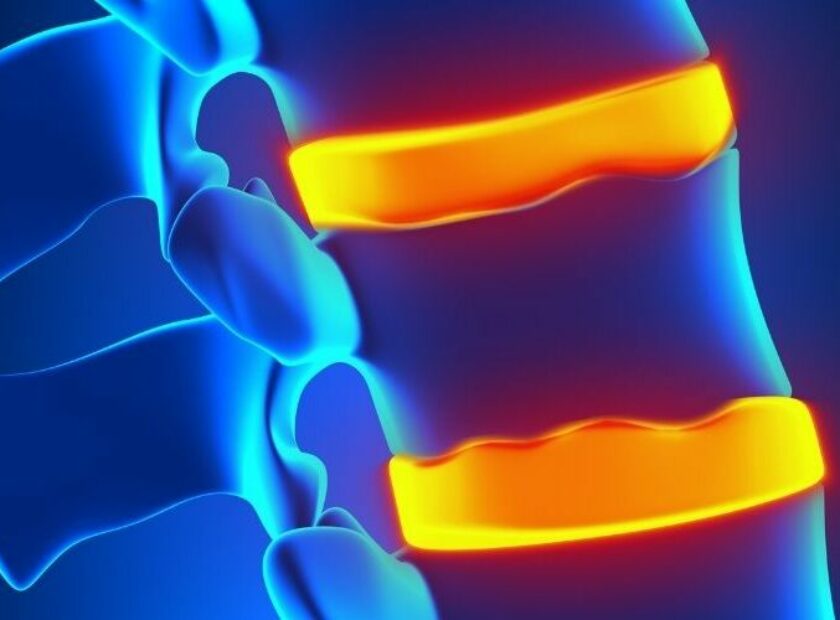Inguinal hernia, inguinal hernia, pain and swelling in the lateral compartment appear as symptoms in people. It worsens with involuntary movements, standing up, straining, and coughing. When tilted and pushed, it goes inside.
The inguinal canal, which should be closed upon birth, is not closed, or the abdominal muscle is strained, which is the cause of inguinal hernia. The small intestine is the most common finding in inguinal hernias, entering the post – operative sac and causing swelling.
The condition that causes the small intestine passage to become obstructed occurs as a result of the intestinal wall getting compressed into the hernial cavity and rapidly swelling.
In such cases, this same pain becomes excruciating. This is known as hernia strangulation. Hernia strangulation is a serious and potentially fatal condition that necessitates emergency surgery.
What Are The Signs and Symptoms of Inguinal Hernia?
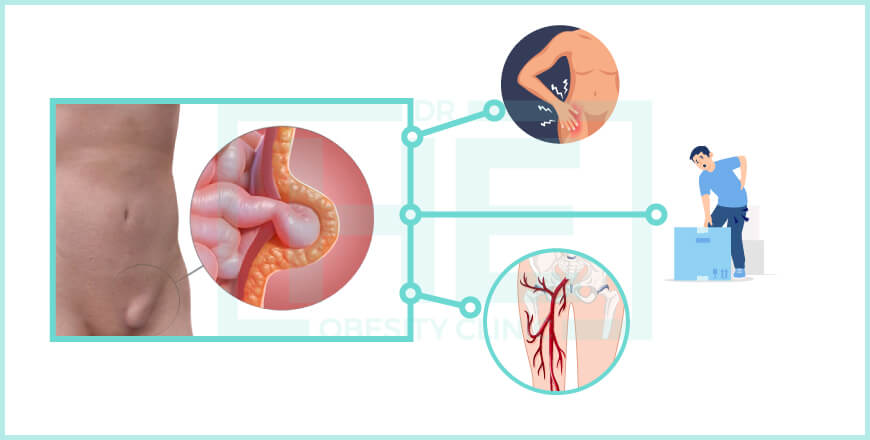
Swelling with in groin that is noticeable when standing, straining, or coughing
Pain or burning in the groin
Pain, heaviness, or discomfort that worsens with movement
Pain that occasionally affects the testicles but rather swelling from around testicles in men
Although an inguinal hernia is not inherently dangerous, the peritoneum or intestine that enters through hole in the abdominal wall can become trapped here. If the swelling does not go away on its own and provokes constant and severe pain, a jailed (stuck) hernia is mentioned, and a doctor should be consulted immediately.
The continued obstruction of blood flow in the vessels disrupts the nutritious food of the compressed tissue and leads to gangrene. Strangulated hernia is the medical term for this condition (strangulated inguinal hernia). It can potentially cause life threatening complications if not treated promptly.
How is Inguinal Hernia Repair Surgery Done?
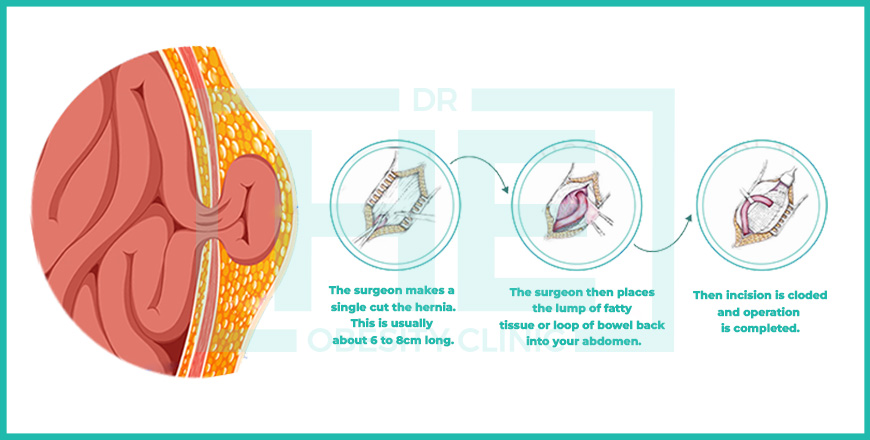
There is no available treatment for inguinal hernia; the only option is surgery. However, people with inert physiology and older persons may rarely use inguinal ligaments as prescribed by their doctor. By acting as a buffer, the inguinal ligament restricts leg movement and prevents the hernia from protruding.
If it comes out from the edge of the iliac crest, it can become stuck and suffocate the hernia. As a result, if possible, surgery should be preferred. The goal of hernia surgery is to locate the hernia in the abdomen, remove the pouch, close the cavity which thus causes the exit, and repair the defect in the abdominal wall to prevent recurrence.
Opened surgery: The tissue that ejects from the groin incision is placed inside, and the defect is repaired with a patch. The doctor is mobilized as soon as possible. Returning to daily life, on the other hand, may take a few days or weeks.
Closed (laparoscopic) surgical procedure: This procedure necessitates general anesthesia. The hernia content is placed in the abdomen with instruments entered through three tiny incisions probably constructed on the belly, and the defect (hole) is repaired in the same way with a patch.
Laparoscopic surgeries allow patients to resume normal activities sooner, leave less scarring, and are less likely to recur. Surgery using the same small incisions is advantageous, especially for individuals with bilateral hernias.
Almost all patients who have open or closed hernia surgery have excellent treatment success. Hernias recur at a rate of less than 1%. The use of clusters in surgeries has reduced the recurrence rate to a few per thousand.
Problems such as wound infection, blistering of the fibres in the groin (cord edema), water cyst (hydrocele), and sensory defects can be seen in less than 5% of patients. It has been observed that young male patients, in particular, who will undergo inguinal hernia surgery are concerned here about harming their sexual functions.
True, the canal, vein, and nerve structures that lead to the sex organs are carefully worked on during the surgery. Sexual functions, on the other hand, are not harmed in a properly conducted hernia surgery.
What is the Price of Inguinal Hernia Repair Surgery in the other countries?
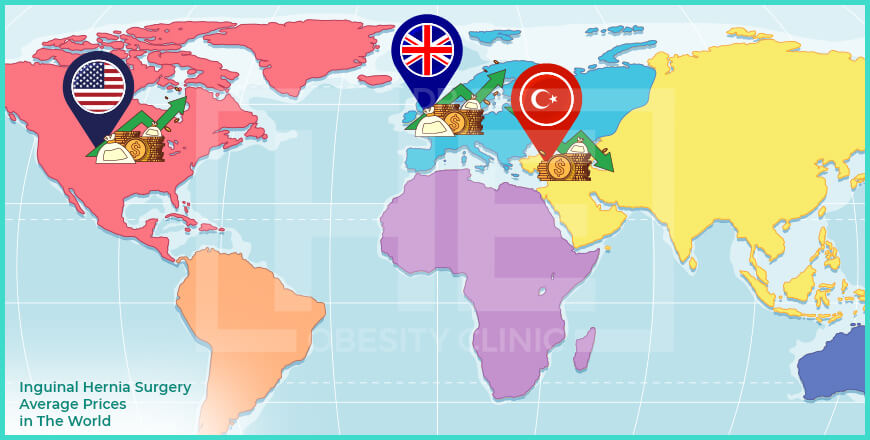
In the United States, the average cost of scoliosis repair surgery is $7,750, with prices ranging from $3,900 to $12,500. An intensive outpatient hernia repair costs an average of $11,500, while an outpatient procedure costs an average of $6,400.
The cost of hernia repair surgery can be greatly influenced by whether the procedure is performed in an inpatient facility, such as a hospital, or in an outpatient surgery center.
Outpatient facilities are just as safe as hospitals, but they can save you thousands of dollars on your medical bills. Whether you have health insurance or not, the target fair price for open and laparotomy repair surgery is $5,500, according to our data.
- The national average is $7,750.
- National Price Range: $3,900 – $12,500 or More
- Average Outpatient Facility Fee: $6,400
- Average Inpatient Facility Fee: $11,500
- $5,500 is the target fair price.
Why Inguinal Herni is More Affordable in Turkey?
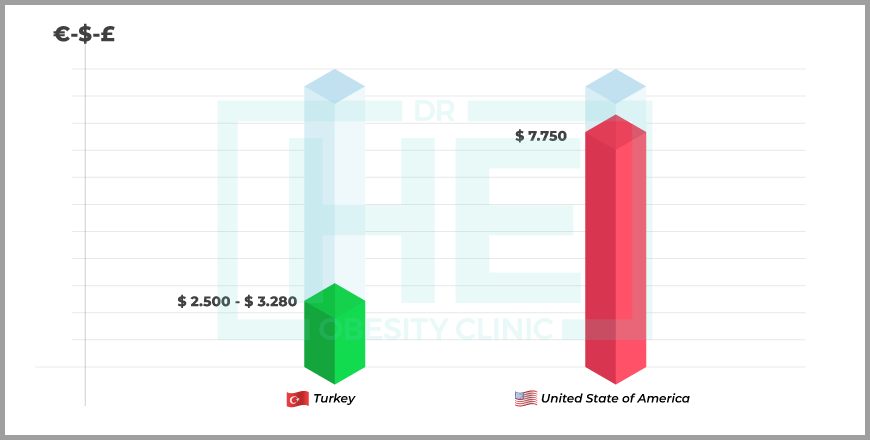
Turkey is one of the best countries for health surgeries. Therefore, Turkey is more affordable than other countries. It allows you to have very good surgeries with its doctors and expert team.
Here you are offered a very good service with full comfort. In Turkey, the fee of Inguinal Herni Repair ranges from USD 2500 to USD 3280. It is almost half the price of other countries.
Inguinal Herni repair surgery in Turkey is a safe and cost effective treatment option for people suffering from herniated or degenerative discs. This makes it an appealing option for medical tourists from the United States and European countries such as France, the United Kingdom, Germany, and others.
Thousands of people from these countries travel to Turkey each year for medical tourism. This surgery is carried out in Turkey by trained spine surgeons with extensive experience and a track record of success in similar procedures. In short, here you are entrusted to very experienced surgeons and specialists. Your surgery is done with great care.
Reference:
Hair, A., Paterson, C., Wright, D., Baxter, J. N., & O’Dwyer, P. J. (2001). What effect does the duration of an inguinal hernia have on patient symptoms?. Journal of the American College of Surgeons, 193(2), 125-129








